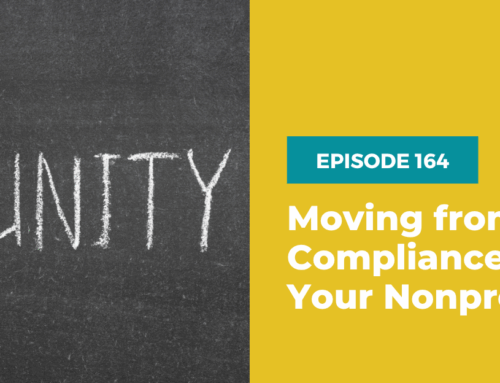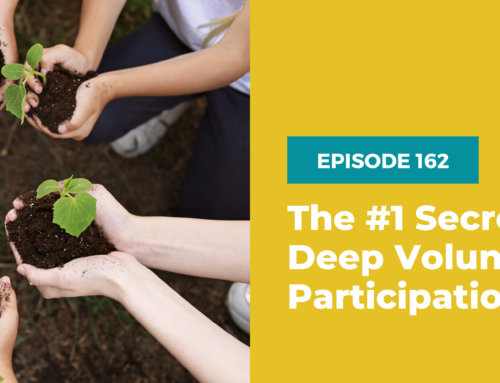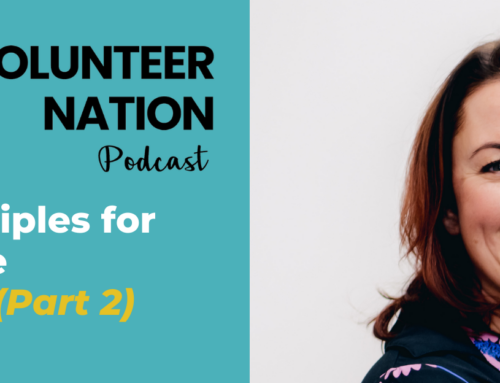
Hiring? Essential Volunteer Coordinator Skills You Need for 2021
What are the essential volunteer coordinator skills for 2021? For today’s world? Not last year or 10 years ago. For now?
When I train nonprofit staff, I often get asked – what’s the most important skill a volunteer manager needs to be successful?
And I always pause for a minute. There is so MUCH that needs to be learned.
And so much has CHANGED.
As a consultant and trainer focused on volunteer administration, one of my key roles is to challenge others to advance their approaches using best practices. But which should I recommend?
The first challenge is that best practices in volunteer management are hard to come by. They are either not shared widely or empirical evidence simply does not exist to prove the efficacy of one management method over another.
Second, the job is complex.
If you review a volunteer resource manager’s job description in today’s world, volunteer coordinator skills and competencies are likely to include experience in marketing, recruitment, human resources management, instructional design and training delivery, and project management.
What’s more, many are now expected to be able to master the technology tools and skills needed to launch and supervise a fully hybrid remote workforce, due to COVID.
The technical, or “paperwork,” side of the house is a BIG job on its own.
Today’s Essential Volunteer Coordinator Skills for 2021
Last year, we launched our inaugural Volunteer Management Fundamentals Certificate Course session. Our goal was to offer new nonprofits leaders a place to go to learn modern strategies for today’s world.
So much of the volunteer management curriculum out there had simply not evolved to include today’s technology and tools to engage audiences, nor had it kept pace with what we now know about human motivation and behavior. In short, it simply was not working anymore.
To our surprise, we not only attracted new volunteer coordinators to the program. Seasoned volunteer administrators, many of who are VolunteerPro community members, participated as well.
And their feedback was consistent – they had learned new things.
In the course, we ended up including a mix of both “people” and “paperwork” focused content, as well as a healthy dose of online strategy. At the time, we had no idea that hybrid volunteerism would become so needed, but we had been engaging audiences online for years and believe in its power.
In the end, here’s what we included – what we believe comprises a complete skill set for an effective leader of volunteers.
Volunteer Management Fundamentals Certificate Course Outline
WEEK 1: Envision the Future
-
- Big Myths About Volunteers
- The Volunteer Lifecycle
- What is a “Volunteer” & Why Does it Matter?
- Commitment to Community Statement
- Align Opportunities with Agency Goals
WEEK 2: Build the Foundation
-
- Quick & Dirty Risk Management Planning
- Options for Volunteer Screening
- Policies for a Better Volunteer Experience
- Your Volunteer Handbook
- Volunteer Workforce Planning
- Essential Tools for Every Volunteer Initiative
- Simple Outcome Metrics to Track Progress
WEEK 3: Grow Engagement
-
- Develop Inspired Role & Team Descriptions
- The Ideal Volunteer & Your Market
- Transformational Recruitment Messaging
- Where to Post & Share Your Appeals
- Find Partners to Help Supply Volunteers
WEEK 4: Sustain Involvement
-
- Volunteer Motivation & Retention 101
- Progressive Levels of Engagement
- Volunteer Orientation vs. Skills Training
- Focus on the Need-to-Know Info
- Easy Ways to Take Your Training Online
- Ways to Monitor Volunteer Satisfaction
- Integrated Volunteer Appreciation
- Communications Consistency & Clarity
WEEK 5: Scale Leadership
-
- Ideas for Upskilling & Leadership Growth
- Working in Teams to Scale Impact
- Prepare Staff to Better Support Volunteers
- Delegation & Coaching for Follow Through
- Dealing with Difficult Volunteer Behaviors
- Conserving the Volunteer Brain Trust
- Plan to Keep Volunteers Coming Back
After my own years in the nonprofit sector, I knew that when it comes to successfully managing volunteer talent, what’s needed are repeatable systems, not one-off tactics. So, we set out to build a training program that worked together, in synergy, as a system.
But that begs the question – what is the #1 most helpful skill volunteer coordinators need?
Aside from the ability to organize their work effectively, I believe it is the ability to lead, hands down.

The Primary Role of Interpersonal Skills in Volunteer Coordination
Whether it be to inspire community volunteers to commit, to influence co-workers to welcome volunteers as partners in their departments, or to paint a big vision for how volunteers can help the organization meet its most pressing goals, the ability to act as a human catalyst is a key volunteer coordinator skill.
However, when you review most volunteer coordinator job descriptions, you don’t often find experience in leadership, human development, emotional intelligence, psychology, neuroscience, motivational techniques listed as desired skills.
Further, exploration of these “people skills” won’t be included on the list of interview questions for the hiring process either.
Some of today’s leading social science researchers now question some of the most commonly held assumptions about how we approach volunteer engagement. They suggest we should consider the “soft skills” as an essential requirement for the most effective and efficient volunteer coordinators and think of volunteer engagement as a regenerative practice.
Because the job of volunteer program administration is indeed complex, it may not be possible to find one employee with all of the traits needed, particularly those that call for cutting-edge approaches.
But nonprofit executives can focus their energies on attracting talent that is more likely to succeed and bear fruit for the organization’s community engagement aspirations.
When deciding where to focus – “people” or “paperwork” – the choice is clear.
The most compelling skills are those related to human psychology, neuroscience, and motivational theory. Because the brain drives everything the body will do, it makes sense to hire and develop volunteer coordinators who can work with human nature not against it.
What’s more, skilled volunteer coordinators rely heavily on their ability to influence others but don’t have the luxury of positional power.
As “middle managers,” they don’t directly supervise staff with whom they might place volunteers, their executives may or may not fully understand the impact and requirements of volunteerism, and volunteers can vote with their feet.
Without positional power, an effective volunteer manager has to rely almost exclusively on their ability to inspire others to action.
That said, merely employing the traditional tools associated with volunteer coordination (e.g., volunteer agreements, positions descriptions, opportunity postings, etc.) does not guarantee volunteer talent.
Volunteerism is about human interaction and is driven by emotion first and foremost. How volunteers feel will drive what they ultimately do.
So, it’s important for new leaders to not only be able to deploy emotional intelligence overall but to also develop a deep understanding of how human motivation works in the volunteer context.
It’s Not Too Complex: Humans Are Predictable
Neuroscience researchers have discovered that human beings behave in specific ways, based on certain triggers. This may come as a surprise, but we are not that complicated.
Our brains have developed over thousands of years of human evolution and have a concrete role in helping us survive as a species. We are not always rational, but we are predictable.
To facilitate the productivity of teams and individuals, volunteer coordinator skills should include an understanding of these underlying patterns of behavior.
Psychology at Work: Managing for Inclusion
For example, researchers argue that minimizing danger and maximizing reward is a key organizing principle of the brain. They posit that the urge to approach possible rewards and avoid potential threats is deeply ingrained and primes much of our reactions to external stimuli. Instinctively, our brains see threat more often than reward.
In order to assess whether we are under threat, we are highly sensitive to “clues” about our status within a group. If we feel excluded, the resulting social pain can be as powerful as physical pain.
When humans don’t feel they are part of the “in-group,” the consequences can be significant. They include reduced cognitive functioning and performance, increased self-defeating behavior, inability to focus on long-term behavior, and reduction of pro-social behavior and teamwork.
In other words, when community members feel excluded, they are less likely to volunteer and donate.
The primal, largely subconscious, part of our brains is the most powerful instigator of human action and reaction.
Therefore, the most effective leaders of volunteers know how to manage for inclusion, mood, empathy, and even fear in their volunteer corps. Some know this intuitively, and others need to build this kind of emotional intelligence.
Soft skills are now of primary importance.

Essential Volunteer Coordinator Skills for 2021
Necessary volunteer coordinator skills and tools look much different than what worked in the past.
Successful leadership in today’s fast-paced world requires thoughtful planning to create brain-friendly environments where everyone feels included, intrinsic rewards are plentiful, and where volunteers have some control over their destiny.
Onboarding and team building have become more important than ever, replacing paperwork is no longer a core strategy. It’s no longer what is done for volunteers, but what is done alongside them.
Volunteer Coordinator Skills & Competencies
Below is a list of core competencies for coordinating volunteers successfully and what they entail. Because these needs are so vast, there is a compelling case to be made that these responsibilities should be split amongst staff, depending on the size of the organization.
Managing People
- Human Resource Management – The ability to engage and support volunteers in a systematic and intentional manner to meet the organization’s strategic objectives.
- Communications, Marketing & Special Events – The ability to create, communicate, deliver, and exchange information that has value to a variety of internal and external stakeholders.
- Training and Talent Development – The ability to build an organization’s capacity through the development of volunteer skills and performance.
- Community Partnership Development – The ability to develop mutually beneficial collaborations with organizations with common interests and goals.
- Leadership & Advising – The ability to manage conflict, coach others, and lead the organization in change management initiatives related to volunteer involvement.
Managing Programs & Projects
- Program Evaluation & Assessment – The ability to use data to conduct a systematic assessment of the processes and outcomes in order to improve the program’s results.
- Program Design & Risk Management – The ability to develop programs, initiatives, and processes that reduce harm and align with the organization’s mission and vision.
- Data Management & Analysis – The ability to collect, analyze, and act upon reliable and valid data in order to engage in program monitoring and reporting to stakeholders.
- Program/Project Planning & Management – The ability to define strategy and plan, organize, motivate, and control resources in order to achieve specific, time-limited goals.
- Financial Management – The ability to generate, manage, and control cash and in-kind resources and be responsible stewards of public and private funds.
In the end, the primary thing nonprofit executives and new leaders of volunteers need to recognize is that their role is shifting and thus the essential volunteer coordinator skills are evolving, too.
The old “command and control” supervisory approach has transitioned to that the role of team facilitator or coach. Collaborative, meaningful work is prized by all, not solely the new generation of volunteers.
My hope is that new leaders understand how they need to build a community from the grassroots to the grasstops.
This takes humility, listening skills, negotiation, and sophisticated conflict resolution skills. Through navigating complex human interactions, and helping volunteers do so, new volunteer coordinators will have a better shot at success.
And we will all have a better chance at real change fueled by enthusiastic, committed, and well-supported volunteer talent.







Leave A Comment